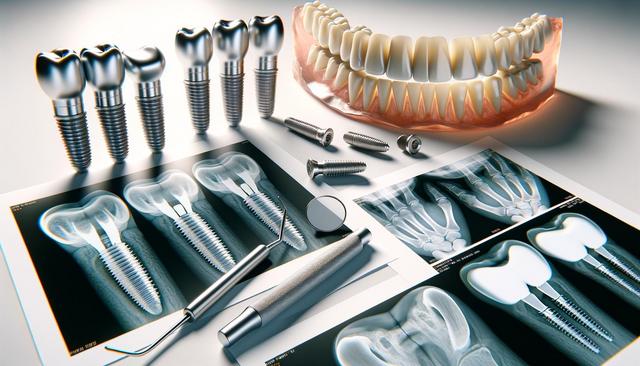Explore Dental Implant Options For Seniors
Explore Dental Implant Options For Seniors

Understanding Dental Implants and Their Relevance for Seniors
Dental implants have become a widely regarded solution for tooth loss, and they are increasingly popular among seniors seeking durable and natural-looking replacements. Typically made of titanium, dental implants act as artificial roots that support crowns, bridges, or dentures. For older adults who have experienced tooth loss due to age, gum disease, or injury, implants offer a reliable way to improve both appearance and oral function. Unlike removable dentures, implants are fixed in the jawbone, offering enhanced stability and comfort.
One of the main reasons seniors consider dental implants is their ability to restore chewing efficiency, which can greatly improve nutrition and digestion. Additionally, implants help prevent bone loss in the jaw, a common concern in aging populations. This preservation of the bone structure also supports facial integrity, helping to avoid the sunken appearance often associated with tooth loss. While dental implants require a surgical procedure, many seniors are suitable candidates, provided they have sufficient bone density and are in reasonably good health.
Why Seniors Are Choosing Dental Implants Over Traditional Dentures
Traditional dentures have long been a go-to solution for missing teeth, but many seniors are now exploring more permanent alternatives. Dental implants offer several advantages that make them an appealing choice over dentures, especially for those looking for a long-term solution with fewer lifestyle limitations. Unlike dentures, which can slip and require adhesives, implants are securely anchored and function like natural teeth.
Here’s why many seniors prefer implants:
- Stability: Implants don’t move or shift, making speaking and eating more comfortable.
- Longevity: With proper care, dental implants can last for decades, often outlasting dentures.
- Convenience: There’s no need to remove implants for cleaning or at night.
- Improved oral health: Implants don’t rely on adjacent teeth for support, preserving natural tooth structure.
While dentures may be more affordable upfront, the long-term value of dental implants can outweigh the initial cost, especially when considering reduced maintenance and the need for fewer replacements over time.
Health Considerations for Seniors Getting Dental Implants
Before undergoing a dental implant procedure, seniors should consider a variety of health factors that may influence the success of the treatment. Age itself is not a limiting factor, but overall health, bone density, and lifestyle habits play a critical role in determining eligibility. A comprehensive dental and medical evaluation is essential to identify any conditions that may affect the healing process or integration of the implant.
- Bone health: Adequate jawbone density is necessary to support the implant. Bone grafting may be an option for those with insufficient bone volume.
- Chronic conditions: Conditions such as diabetes or osteoporosis should be well-managed, as they can affect healing.
- Medications: Some medications, particularly bisphosphonates, may interfere with bone healing.
- Smoking: Tobacco use can significantly reduce the success rate of implants and is typically discouraged.
Working closely with a dental specialist ensures that all necessary precautions are taken before, during, and after the procedure. Seniors should not be discouraged by their age alone, as many older adults have undergone successful implant procedures with favorable outcomes.
Types of Dental Implants Available for Seniors
There are various dental implant options available, and the choice depends on individual needs, oral health, and budget. Seniors can benefit from the flexibility offered by different types of implants, each designed to meet specific requirements. Whether someone is missing one tooth or an entire arch, there are tailored solutions to restore function and aesthetics.
Common dental implant options for seniors include:
- Single-tooth implants: Ideal for replacing one missing tooth without affecting neighboring teeth.
- Implant-supported bridges: Used when multiple teeth in a row are missing, offering a stable alternative to traditional bridges.
- Implant-supported dentures: Provide added security compared to conventional dentures, reducing slippage and discomfort.
- All-on-4 implants: A full-arch restoration using four strategically placed implants, suitable for those with significant tooth loss.
Each type has its own set of benefits and considerations, and a qualified dental professional can help seniors choose the most appropriate option based on their oral health profile and goals.
What to Expect During and After the Procedure
The process of receiving dental implants involves several stages, from initial consultation to the final placement of the crown or denture. Understanding what to expect can help seniors prepare physically and mentally for the journey. Typically, the procedure begins with a comprehensive evaluation, including imaging and medical history review.
The steps involved usually include:
- Surgical placement: The implant is inserted into the jawbone under local anesthesia.
- Healing phase: Osseointegration occurs over several months, during which the implant fuses with the bone.
- Abutment placement: A small connector is added to hold the final restoration.
- Final restoration: A crown, bridge, or denture is attached to the implant.
Post-operative care is crucial to ensure healing and implant longevity. Seniors should maintain good oral hygiene, attend follow-up appointments, and follow dietary guidelines during the recovery phase. Mild discomfort and swelling are common initially but typically subside within a few days. With proper care, dental implants can offer a lasting solution that significantly enhances quality of life.
Conclusion: A Viable Path to Improved Oral Health for Seniors
For seniors experiencing tooth loss, dental implants represent a meaningful investment in long-term oral health and quality of life. They offer a stable, natural-looking solution that supports better nutrition, speech, and self-confidence. While the process involves multiple steps and considerations, many older adults find the benefits well worth the effort.
By exploring dental implant options for seniors, individuals can make informed decisions based on their health, lifestyle, and dental needs. With advancements in implant technology and personalized care available, age no longer needs to be a barrier to achieving a healthier, more confident smile.